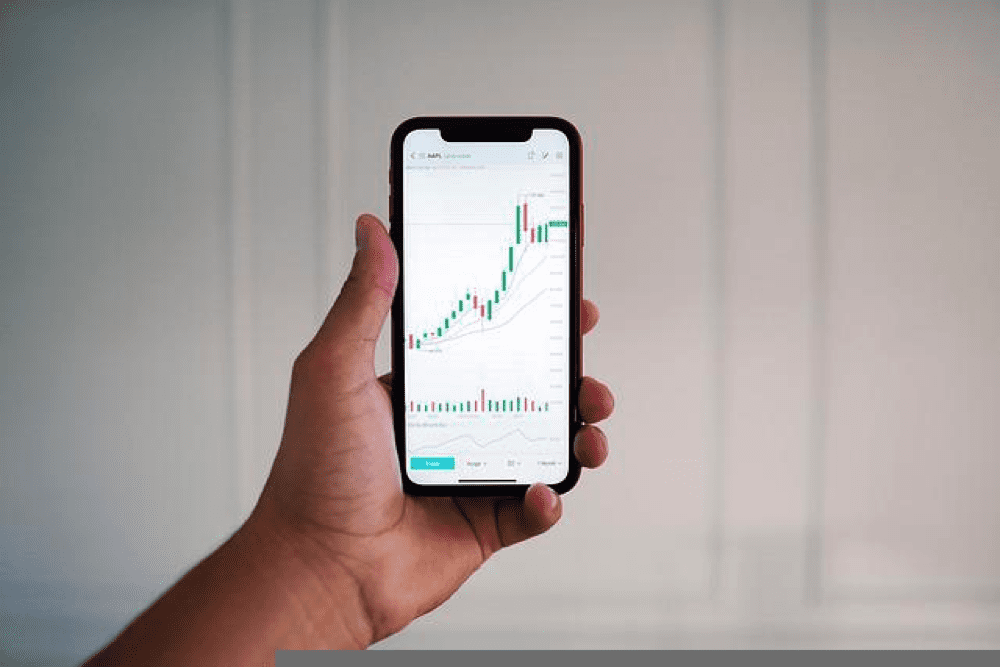

Also Read: Day Trading Computer Set Up
Contents
- Day Trading for Dummies: Introduction
- Day Trading for Dummies: Required Qualifications
- What are the Most Effective Day Trading Strategies for a Successful Day Trader?
- Day Trading for Dummies: Best Trading Strategy?
- Is Technical Analysis more Suitable for Day Trading than Fundamental Analysis?
- Why is Day Trading Contentious in the Financial Industry?
- Why is it so Challenging to Reliably Profit from Day Trading?
- What are the Risks Associated with Day Trading?
- Should You Participate in Day Trading?
- Why is a day Trading Position not held Overnight?
- Day Trading for Dummies: Pros and Cons
- FAQs
Day Trading for Dummies: Introduction
A day trader is a kind of trader that conducts a high number of short and long transactions to profit from intraday market price behavior. The objective is to benefit from extremely short-term price fluctuations.
Additionally, day traders can employ leverage to compound their earnings, but the trade-off is that this may also exacerbate their losses.
While day traders apply a variety of tactics, the price movement desired is the product of transient supply and demand discrepancies generated by asset acquisitions and trades.
Trades are often held for seconds to hours and are typically carried out before the end of each trading day so that no liability is retained overnight or after hours.

Day Trading for Dummies: Required Qualifications
No specific skills are necessary to become a day trader. Rather, day traders are categorized according to how often they trade.
FINRA, which is a financial industry regulatory authority, and the U.S. Securities and Exchange Commission categorize day traders depending on whether they trade four or more times in five days.
This is provided that the number of day trades represents more than 6 percent of the user's overall financial transactions during that time frame, or if the investment management firm where they established an account classifies them as a day trader.
Typically, a trader cancels all deals before the conclusion of the trading day so that no open positions remain overnight. The bid-ask spread, trading fees, and the cost of real-time news feeds and analytical tools may hinder the efficacy of a trader.
Day trading demands substantial knowledge and expertise to be successful. Numerous approaches are used by day traders to make trading choices. A chartered financial analyst is a person that works for a brokerage firm and uses the trading platform and trading tools at hand for profitable trading and money management.
Many traders utilize computer trading algorithms that compute favorable probabilities based on technical analysis, while others rely on their subjective judgment.
A day trader focuses largely on the share price movement of a particular stock.
In contrast, investors assess the long-term growth prospects of a firm using fundamental data before deciding whether to purchase, sell, or keep its shares.
For a day trader, price fluctuations and the average daily range are crucial. A security's market value must exhibit adequate volatility for a trader to generate a profit.
Volume and liquidity are also essential since initiating and closing trades rapidly is essential for collecting tiny gains per transaction. A day trader would not be interested in stocks with a narrow daily range or little daily turnover.

What are the Most Effective Day Trading Strategies for a Successful Day Trader?
Day traders use a variety of intraday methods. These may involve the following trading strategies:
News-driven trading
This day trading strategy often capitalizes on the increased volatility of day trade stocks as a result of media coverage and publications.
Following the financial markets
Someone who follows the trend will purchase when prices are increasing and sell short when prices are falling. This is done based on the premise that prices will continue to rise or decrease continuously.
Contrarian speculation
This technique presupposes that a price increase would revert and decline. The contrarian purchases during a decline or sells short during a gain with the hope that the trend will reverse.
Scalping
This technique aims to generate a large number of tiny gains from minor price fluctuations during the day and can also include spotting short-lived arbitrage situations.
Range trading
Support and resistance levels are usually used to establish buy and sell decisions using this method. This trading strategy may also be referred to as swing trading if holdings are maintained for weeks as opposed to hours or days.
High-volume trading
This method utilizes minor or short-term market imbalances up to several thousand times every day using advanced algorithms. This is done using online brokers and advanced trading platforms.

Day Trading for Dummies: Best Trading Strategy?
Following the trend is most likely the simplest trading technique for beginners, given that the trend is your ally. Contrarian investing is the practice of betting against the market flow.
You purchase a commodity when the market is dropping and sell it when it is rising. This may be a challenging trading strategy for novices.
Scalping and news trading involve mental acuity and quick decision-making, which may be challenging for a newbie.

Is Technical Analysis more Suitable for Day Trading than Fundamental Analysis?
For day trading, technical analysis may be more suitable. This is because it may assist traders in identifying the crucial short-term trading relationships and correlations for day trading.
Due to its emphasis on value, fundamental analysis is more suitable for long-term investment.
The discrepancy between the real price of an item and its intrinsic worth as assessed by fundamental research may persist for months, if not years.
Short-term market response to basic data such as news or earnings announcements is likewise very unpredictable.
Day traders should watch the market's response to such basic data for market opportunities that may be leveraged using technical analysis.

Why is Day Trading Contentious in the Financial Industry?
A large number of experienced fund managers and financial advisers avoid day trading. They contend that in the majority of situations, the benefit does not warrant the risk.
In contrast, many who engage in day trading argue that gains can be achieved.
Profitable day trading is feasible, but the completion rate is lower since day trading is innately unsafe and takes significant expertise.
In addition, economic experts and financial professionals agree that, over extended periods, active trading techniques tend to lose out to a passive index approach, particularly once fees and taxes are accounted for.
Day trading is not everyone's cup of tea and carries substantial risks. In addition, it necessitates an in-depth grasp of how markets function and numerous short-term profit techniques.
Realize that this is not the situation for the vast majority of day traders, even though day trading success stories get a great deal of press coverage. Many will fail, while others will barely remain afloat.
In addition, do not underestimate the importance of luck and excellent timing; although expertise is a factor, a poor streak of luck may drown even the most seasoned trader.

Why is it so Challenging to Reliably Profit from Day Trading?
Consistently profiting from day trading demands a diverse set of abilities and characteristics, including research, expertise, dedication, mental toughness, and trading savvy.
Beginners may find it difficult to apply fundamental techniques such as minimizing losses or letting gains run. In addition, it is difficult to maintain trading discipline when faced with obstacles such as market instability or substantial losses.
Day trading entails competing with millions of market professionals who have direct connections to cutting-edge technologies, a lot of experience and skill, and significant resources. When everyone attempts to exploit weaknesses in market mechanisms, this is not a simple undertaking.
Also Read: Best Day Trading Stocks: For The Biggest Profits
What are the Risks Associated with Day Trading?
Due to the multitude of inherent hazards, day trading may be intimidating for the typical investor. The U.S. Securities and Exchange Commission stresses the following dangers associated with day trading:
Financial distress
Day traders should only risk money they can afford to lose since their first few trades often result in big losses and many don't go on to make money.
Demanding and stressful
Observing hundreds of ticker quotes and price movements to identify market patterns requires a high level of attention. Day trading is an exceedingly challenging endeavor.
Day traders usually pay their companies a lot of money for commissions, coaching, and technology. They also have to pay a lot for costs.
Reliant heavily on borrowed funds
Day-trading tactics rely on the leverage of borrowed funds to generate gains, which explains why so many day-traders not only squander their whole investment capital but also incur debt.
Hard to make a profit
Be wary of specific suggestions and expert advice from publications and blogs that appeal to day traders, and keep in mind that day trading forums and programs may not be impartial.
Should You Participate in Day Trading?
As stated before, day trading as a profession may be demanding and hard. First, you must have an awareness of the trading industry and a solid understanding of your risk tolerance, money, and objectives.
Day trading is another occupation that needs a great deal of time. If you want to refine your tactics and earn money, you must invest a great deal of time in doing so.
This is not something you can do on the side or whenever the mood strikes. You must be entirely committed to it.
Start modestly if you determine that the excitement of trading is suitable for you. Concentrate on a few securities rather than diving blindly into the market and spreading yourself too thin.
Going all-in will only disrupt your trading approach and might result in significant losses. Lastly, maintain your composure and attempt to keep your emotions out of your deals.
The greater your ability to do so, the greater your ability to stick to your strategy. Keeping your cool helps you keep your focus and stay on the path you have chosen.
If you follow these rules, it is possible that day trading will be a successful career for you.
Why is a day Trading Position not held Overnight?
A trader may seek to retain a position overnight to decrease losses on a losing transaction or boost earnings on a successful deal.
If a trader's only goal is to avoid losing money on a bad deal, this is usually not a good plan.
Among the risks associated with keeping a day trading position overnight include the need to fulfill margin requirements, the incurrence of extra borrowing charges, and the possible effect of unfavorable news.
The risk of staying in a position overnight may be greater than the chance of getting a good result.
Day Trading for Dummies: Pros and Cons
Pros
Usually, positions are closed at the end of each trading day. This means that overnight news or broker activity after trading hours does not affect the positions.
Tight stop-loss orders help safeguard holdings against excessive price fluctuations.
Frequent traders get access to higher leverage and reduced commissions.
Different trades enhance experiential learning.
Cons
Frequent transactions do involve several commission expenses.
Mutual funds and other assets are prohibited.
There may not be enough time for a position to make a profit before it has to be closed.
Losses may accumulate rapidly, particularly when using margin to fund purchases. Margin calls pose a genuine threat.
FAQs
What is the similarity between day trading and foreign exchange trading?
Forex trading, or foreign currency trading, is comparable to day trading in that it may be conducted in small bursts daily.
However, trading sessions for stocks are restricted to exchange hours, normally Monday through Friday from 9:30 a.m. to 4:00 p.m. EST, excluding market holidays.
In contrast, the currency market is open 24 hours a day from 5 p.m. EST Sunday to 5 p.m. EST Friday.
Is day trading against the law?
Day trading is not illegal or immoral, but it may be very hazardous.
As a result of the fact that the majority of day-trading tactics involve leverage in margin accounts, day traders run the risk of losing more than they have invested and incurring substantial debt.
How can arbitrage be used as a strategy for day trading?
Arbitrage refers to the concurrent buying and selling of the same securities on various markets to benefit from minute price discrepancies.
Arbitrage provides a way to make sure that any difference between the price of an item and its true value is quickly fixed.
Because of this, arbitrage opportunities are rarely available for long periods.
Is day trading gambling?
Day trading might be comparable to gambling.
For example, when you execute a day trade, you wager that the short-term price fluctuations of a certain asset will be in a particular direction.
A person is likely gambling if they trade just for the emotional high of winning and without the logical detachment given by extensive investigation.
Emotionally-driven traders may fail to detect a losing wager and close their holdings.
What Are Day Trading Commitment Requirements?
The minimum investment required for a pattern day trader customer of a broker-dealer is $25,000, which must be put into the client's account before engaging in any day-trading activity and retained at all times.
What Is the Purchasing Power of Day Traders on the Stock Market?
Buying power is the entire amount of capital an investor has access to exchange stocks, and it represents money in the account with an available margin.
A customer of a broker-dealer who is classified as a pattern day trader may trade up to four times their maintenance margin excess for stocks as of the previous day's close of business.

















